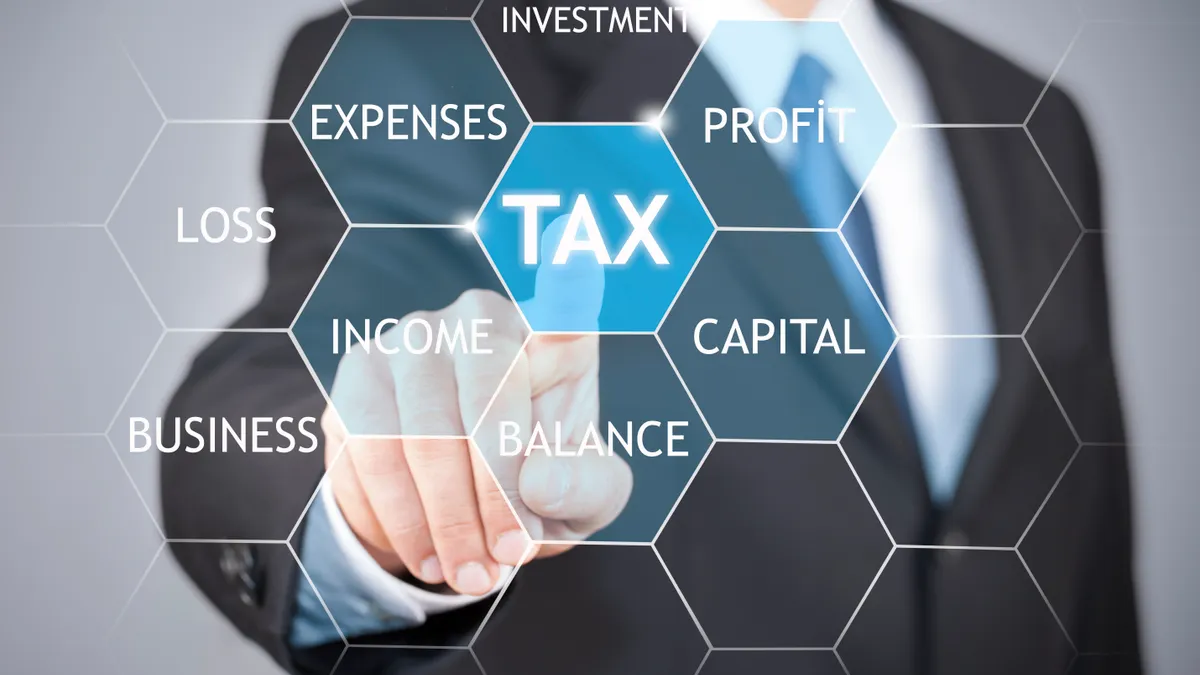Dive Brief:
- The media is awash in reports of large companies paying little to no taxes but the reality is different, with 65% of large companies saying their total taxes are up in the past 12 months and a quarter of them saying their taxes are way up, a BDO survey finds.
- “Total tax liability is on the rise,” says the 2022 BDO Tax Outlook Survey, which compiles the views of 150 tax executives.
- Relief isn’t in sight. Three-quarters of executives say they expect their company taxes to go up further in the next 12 months. That’s without knowing what tax changes in the U.S. and globally could become law. “The lack of clarity around which tax policies might ultimately advance underscores the importance for business leaders to understand the effect of business decisions on their tax positions,” the report says.
Dive Insight:
The higher burdens can be hard for non-tax executives to get their arms around because total taxes encompass global, federal, state and local taxes and also include indirect taxes that get passed on to the company, in many cases by suppliers, and secondary impacts that can be hard to calculate, like the impact of transfer pricing from the OECD global tax reform framework. Then there are real estate taxes and the impact of nexus rules as companies see more employees working, and more customers buying, remotely.
“The percentage of [executives] reporting a high level of understanding [of total tax] is down,” the report says, “a reflection of increased tax complexity.”

Income tax tends to be companies’ big focus, but for many, the sources of their biggest increases apart from income taxes are lower-profile, like employment taxes and customs duties. Property, excise and indirect taxes are other sources of increases.
Despite growing complexity, only 45% of tax executives say they’re in the room when strategic decisions are made, an 11% drop from last year.
“This decrease may indicate that as leadership managed to pull their organizations out of pandemic crisis mode, they felt comfortable consulting less frequently with their tax departments on cash-generating strategies,” BDO says.
If they’re not included in decision-making, tax executives are nevertheless increasingly asked to explain impacts of business decisions. Almost 60% say they’re spending more time explaining tax impacts.
Strategic role
Ideally, tax executives say, they would be brought in earlier on strategic issues like restructuring, global mobility and M&A, especially as their company moves into a post-pandemic business posture.
“The data suggests the tax department could be better leveraged to help organizations accelerate ongoing recovery from the pandemic,” the report says,
International trade, product or service development, geographic expansion, environmental, social and governance (ESG) implementation, digital transformation, supply chain management and cybersecurity are among the areas tax executives could provide strategic value beyond restructurings and M&A.












